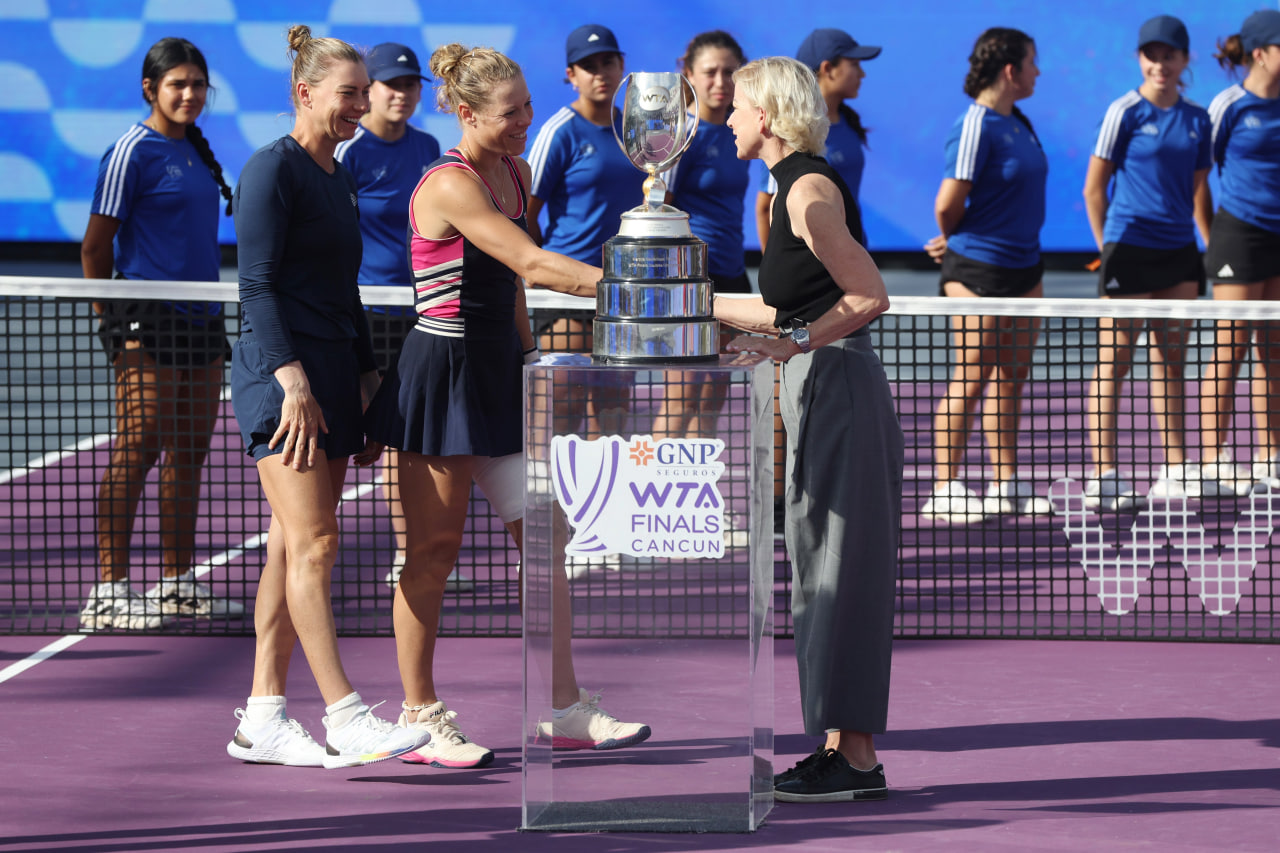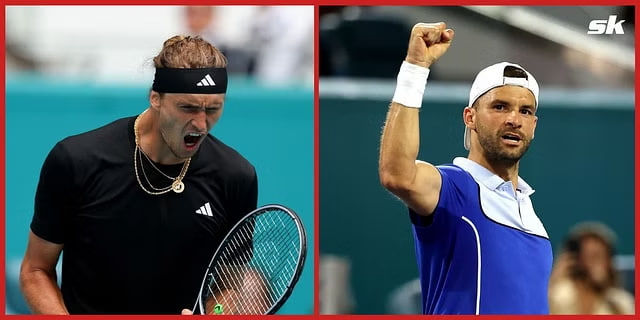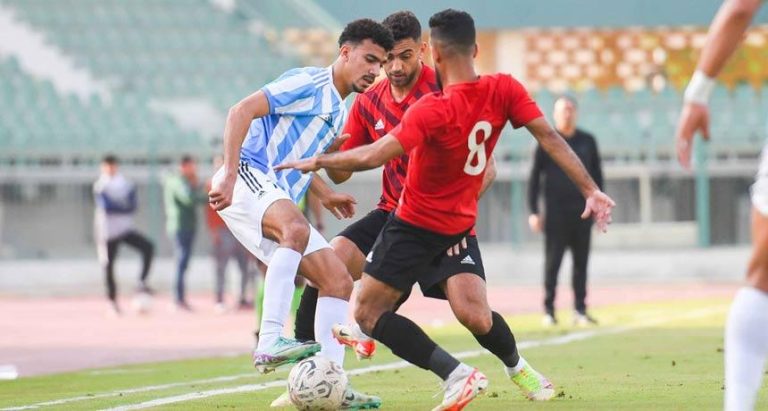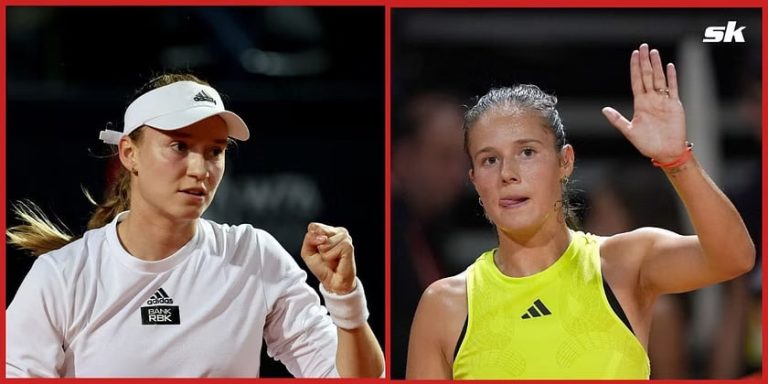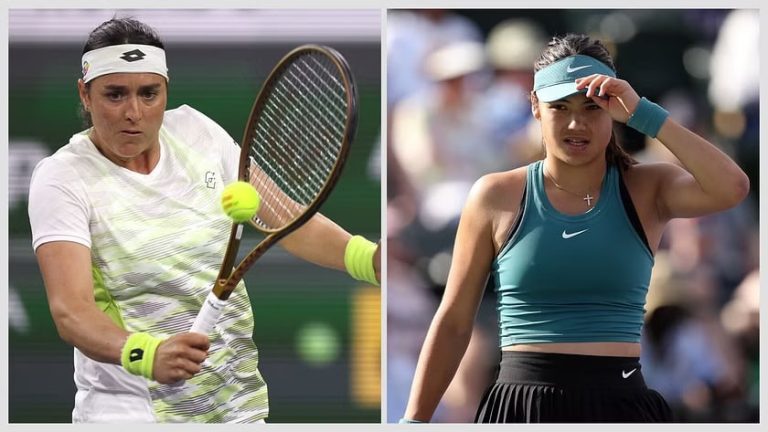The ambassador believes that criticizing the WTA Finals’ relocation to Saudi Arabia “undermines women.”
The decision to move the Women’s Tennis Association (WTA) Finals to Saudi Arabia has sparked a heated debate, drawing criticism from prominent figures like tennis legends Chris Evert and Martina Navratilova. Saudi Ambassador to the United States, Reema bint Bandar Al-Saud, has strongly defended the choice, dismissing what she perceives as western-centric views and outdated stereotypes.
Tennis Full Results | Schedule
Reema Al-Saud’s Perspective:
In a statement released on Monday, Reema Al-Saud expressed her disappointment with Evert and Navratilova, stating that these tennis champions have turned their backs on the women they once inspired. She highlighted that the objections raised in The Washington Post are based on stereotypes and western-centric perspectives, urging a more nuanced understanding of Saudi culture and progress.
Denouncement of Stereotypes:
Al-Saud lamented the use of outdated stereotypes in the critique, asserting that failing to recognize the significant progress made by women in Saudi Arabia undermines their remarkable journey. As a member of Saudi Arabia’s Olympic Committee and an International Olympic Committee board member, she emphasized the strides Saudi women have taken in various fields, including sports, governance, law, and business.
Empowerment of Saudi Women:
Reema Al-Saud asserted that Saudi women are in control of their personal and financial futures, challenging the notion that they are oppressed or restricted in their choices. She highlighted the progress made by Saudi women in sports, echoing their increasing involvement in diverse sectors as a testament to their empowerment.
Sports as a Unifying Force:
The ambassador argued against using sports as a tool to advance personal biases or agendas, emphasizing that sports should be a unifying force rather than a divisive one. Al-Saud expressed her eagerness to embrace tennis as a means to celebrate and promote the growth of the sport in Saudi Arabia.
WTA Chief’s Response:
WTA Chief Steve Simon responded to the controversy, stating that no final decision has been made regarding the location of the 2024 WTA Finals. He acknowledged that discussions were ongoing, acknowledging that Saudi Arabia presented “big issues.” Simon revealed that the matter is being considered with input from various groups and stakeholders.
Divergence with Men’s ATP Tour:
While the men’s ATP Tour had previously announced a five-year agreement with Saudi Arabia to host its Next Gen Finals, Evert and Navratilova argued that the situation differs for women, citing conflicts with “WTA values.” This discrepancy underscores the complexities surrounding gender-specific sporting events and the values associated with different tours.
Saudi Arabia’s Sports Investments:
Saudi Arabia has significantly invested in various sports, including soccer, Formula One, and golf in recent years. However, critics have accused the country of using sports to divert attention from its alleged poor record on human rights and equality issues. The debate over hosting major sporting events in the kingdom raises questions about the intersection of sports, politics, and social progress.
Conclusion:
The controversy surrounding the relocation of the WTA Finals to Saudi Arabia highlights the intricate dynamics of international sports, cultural differences, and the role of major tournaments in fostering social change. Reema Al-Saud’s response challenges stereotypes and calls for a more nuanced understanding of Saudi women’s progress. As discussions continue within the WTA, the broader implications of hosting sporting events in Saudi Arabia underscore the ongoing tension between sports diplomacy and human rights advocacy.

